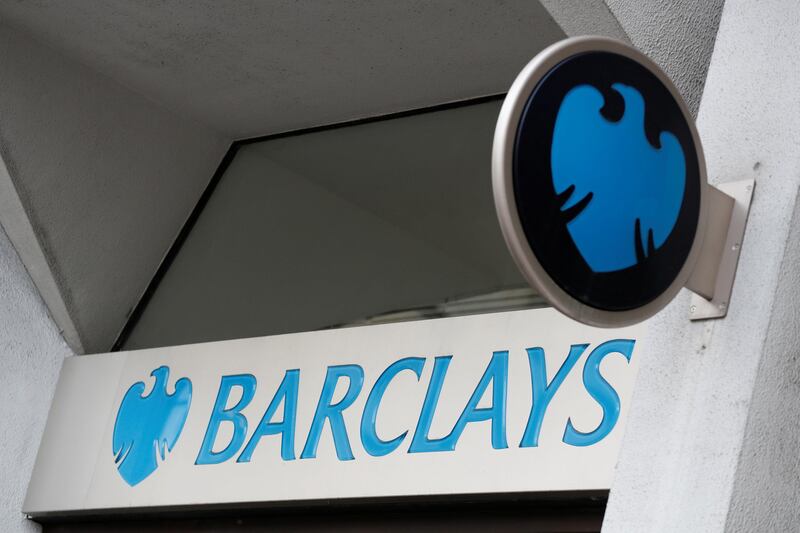How long will it be before Britain’s big banks finally emerge from the long shadows of the 2008/9 banking crisis?
A series of events and announcements in the past week suggest it will be a while yet.
Barclays, alone of the big four (I exclude HSBC), managed to avoid taking government money but now faces perhaps the biggest punishment of any of the banks. Criminal proceedings against John Varley, its former chief executive, and several other executives, for their role in a £7 billon (Dh34.12bn) rights issue at the height of the crisis, are due to start in January and could run for months, even years. This week the bank has made another despairing attempt to delay a separate but connected court action brought by the financier Amanda Staveley, who claims she brokered the deal with investors in Qatar and Abu Dhabi. Ms Staveley is suing Barclays for the best part of £1bn in fees on money which was actually raised at a 50 per cent discount on the market price. By way of comparison, Lloyds, HBOS and RBS received a cash injection from the Treasury at just an 8 per cent discount – and no criminal charges.
The point is that Mr Varley and several of the other executives will be the main witnesses defending the bank against Ms Staveley’s claim – and they might be just a bit distracted by the thought of a possible jail sentence. Hence the bank’s attempts to put back the Staveley case and concentrate on one battle at a time.
Meanwhile, the accounting firm KPMG, on top of its South African problems that I wrote about last week, is also back in the public eye over its performance as auditor to HBOS in the months leading up to crisis. In February 2008, KPMG signed off HBOS’s 2007 annual accounts and also its rights issue document just months before it had to be bailed out by Lloyds. HBOS’ impairment provisions, the accounting firm opined, were “within an acceptable range”, and poor old Lloyds, which thought it was being on the safe side when it wrote off another £10bn, accepted them at their word. In fact, over £50bn was eventually written off HBOS’s loan book, £10bn of it in Ireland alone. “How could you lose so much money in such a small place?” the chairman of the Lloyds audit committee asked plaintively when the figures began coming in.
Nonetheless, the Financial Reporting Council cleared KPMG of “falling significantly short of standards”, a decision which is now being seriously questioned by the UK Treasury select committee after it emerged that a former KPMG partner was the FCA executive who set the standards.
Meanwhile in Lloyds itself, the aftermath of the crisis also rumbles on. A legal action by shareholders against the bank and senior executives is moving towards a court hearing, a decade after the event. The action group complains that Lloyds did not give shareholders the full story when it asked them to approve the HBOS deal and contribute to a rights issue in 2008. But Lloyds, as I discovered when I wrote my book (Black Horse Ride), can't be faulted on board procedures or legal processes. The real charge against it is that it made the wrong judgment call in pursuing the deal in the teeth of the worst recession since the 1920s. But you can't sue a bank for bad judgement.
Read more:
UK lenders plan to close record 762 branches as banks pivot towards digital space
Law firm steers clear of Qatar on concern Barclays loan illegal
Britons fearing Brexit seek shelter in HSBC FX accounts
Lloyds might just pay something to get the action out of the way, which is probably what the action group is hanging around for.
You can’t blame them for trying. Lloyds has actually emerged from it all as the biggest – and one of the strongest – financial institutions in Europe. But shareholders, who saw the value of their investments diluted by over 90 per cent in the huge restructuring, can be forgiven for feeling a bit peeved.
After the HBOS merger, Lloyds was required by the European competition regulators to spin off around 1,000 of its branches into a separate company, now renamed TSB. The problem was that it had spent years and millions of pounds putting all its branches on to a single IT system which can’t be easily unwound. Lloyds agreed to contribute £450 million to help the new bank, also called TSB, to build a new IT system. Bank analysts warned at the time that removing itself from the Lloyds system would cost more and take longer than expected – and they were right. This week TSB admitted it would not meet either target.
HSBC (and, to an extent, Standard Chartered – which developed its own home-grown problems later on), was the only big bank which came through the crisis unscathed. But it, too, has decided there has to be change and has broken with tradition by appointing Mark Tucker, the former head of the Asian insurer AIA, as the first chairman in its 152-year history to be recruited from outside. Mr Tucker’s first big task is to appoint a new chief executive, and he has moved with commendable speed. The story inside the bank is that he will stick with tradition and choose an insider by promoting John Flint, the bank’s head of retail banking and wealth management, to the job.
I hope he does. Not everything has to change.





